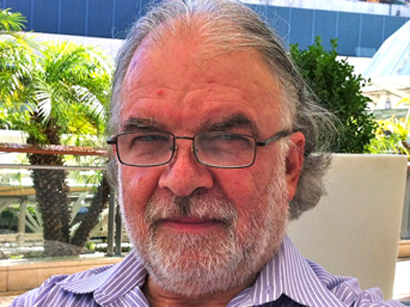By Claude Salhani - Trend:
In the midst of the Cold War Soviet Russia was trying to achieve an objective that had previously been an issue of prime importance, actually make that an issue of national security, even for tsarist Russia. And today that same issue remains a major point of concern for Putin's Russia: access to warm water ports for its navies.
As Russia's northern ports freeze during the long and harsh winters, having their fleet gain access to navigable ports is a matter of national security for Russia, be it tsarist, Soviet or today's Russia. The matter carries such importance for the Kremlin - regardless of who the current resident might be. The tsars fought the French and English in Crimea in 1853-56. The Soviets invaded Afghanistan in 1979 as a first step towards reaching their ultimate objective, a port in the warm waters of the Gulf. Once Afghanistan would have been stabilized, the Soviets would have pushed further south through either Iran or Pakistan.
This is why the United States engaged the Soviets in Afghanistan by financing, training and arming the Mujahedeen resistance, including one Osama bin Laden and his al-Qaida organization, knowing fully that the Soviets on the Gulf would alter the geopolitical map of the region, redistributing the cards, and this time giving the Russians a prime piece of real estate.
Well, the Cold War maybe over and the Cold War warriors may not be threatening each other with Inter-Continental Ballistic Missiles aimed at each other's capitals and major cities any longer, but at least back then we knew where the threats originated.
It's at critical times like these that one looks back at the simplicity of the Cold War with a tad of nostalgia. Life, particularly political life, seemed pretty straightforward. There were the "good guys" and the "bad guys" and everyone knew where they stood. At least, theoretically.
And just as theoretically, the good guys were fighting to spread democracy and prevent the "Evil Empire" from dominating the world by spreading communism. At least that was the view -albeit somewhat simplified - seen from outside the Iron Curtain. That being said, the view from inside the Iron Curtain was just as narrow, if not more so.
Supporters of U.S. President Ronald Reagan like to think that it was "the Gipper" who was instrumental in bringing about the demise of communism after he stood by the Brandenburg Gate in Berlin and delivered what was probably the apex of his two careers, both as an actor and as a politician, and asked the secretary general of the Soviet Union to "Open this gate" and "Tear down this Wall."
There is no doubt that Reagan's message to Mikhail Gorbachev may have had an impact but there were two other ingredients that helped considerably. The first was the U.S. investment in the Space War Initiative, or as it was called at times, "Star Wars," a mostly utopian exercise undertaken by the Americans to make the Russians believe they were developing super sophisticated weapons systems that could wipe out Soviet armament from space. Immeasurable sums of money went in to the program forcing the Soviets to spend money they simply didn't have. This alone bankrupted the Kremlin. On top of that, the CIA's sabotage of the trans-Siberian pipeline, a black ops that put the final nail in the communist coffin.
Today we find that history is repeating itself with Russia fighting (at least by proxy for the moment) to maintain a naval presence in Crimea and the port of Sevastopol. If the threat of sabotage to the trans-Siberia Pipeline no longer exists, the threat of financial pressure may come in the form of sanctions imposed by the West on a different pipeline, the South Stream that carries Russian gas to the European Union.
Claude Salhani is senior editor at Trend Agency in Baku and a political analyst specializing in the Middle East, Central Asia and terrorism. You can follow him in Twitter @claudesalhani.






